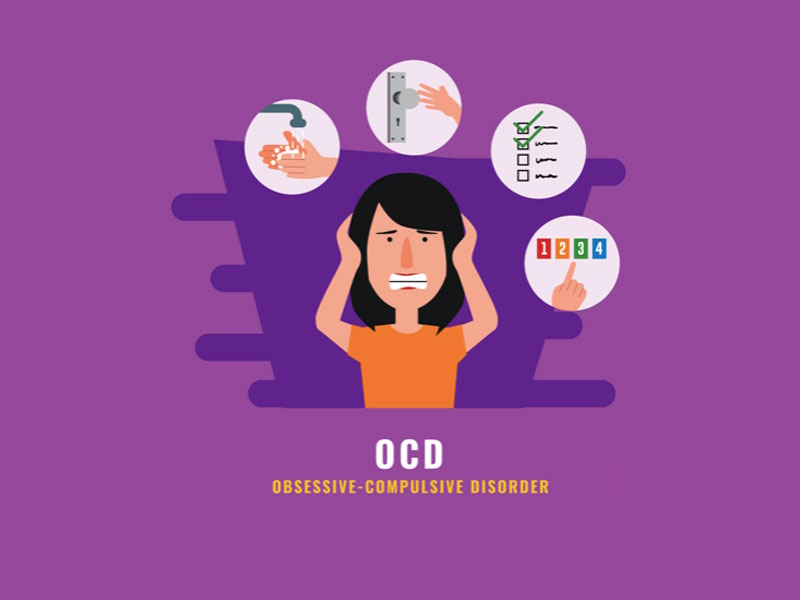
6 Types of OCD and their symptoms
Obsessive-Compulsive Disorder (OCD) is a mental health condition characterized by intrusive thoughts (obsessions) and repetitive behaviors (compulsions) that cause significant distress and interfere with daily functioning. While there is no official subtyping system for OCD in the Diagnostic and Statistical Manual of Mental Disorders (DSM-5), clinicians may observe different presentations of OCD based on certain symptom patterns. Here are some common presentations of OCD and their associated symptoms:
1. Contamination OCD
- Obsessions: Excessive fear of germs, dirt, or contamination.
- Compulsions: Excessive washing, cleaning, or avoidance behaviors to reduce the perceived contamination.
2. Checking OCD
- Obsessions: Intrusive thoughts about harm or danger occurring due to negligence or mistakes.
- Compulsions: Repeatedly checking locks, appliances, or personal belongings to ensure safety or prevent harm.
3. Symmetry and Ordering OCD
- Obsessions: Need for symmetry, order, or exactness in daily activities or surroundings.
- Compulsions: Repeated arranging, counting, or aligning objects to achieve a sense of symmetry or order.
4. Intrusive Thoughts and Mental Rituals OCD
- Obsessions: Disturbing, intrusive thoughts, or mental images related to harm, violence, or unacceptable/taboo themes.
- Compulsions: Engaging in mental rituals, such as repetitive counting, praying, or mentally reviewing to neutralize or prevent the feared outcome.
5. Hoarding OCD
- Obsessions: Strong attachment to possessions and difficulty discarding items.
- Compulsions: Excessive collecting, acquiring, and saving of objects, leading to significant clutter and difficulty organizing living spaces.
6. Purely Obsessional OCD
- Obsessions: Intrusive, distressing thoughts or images without apparent external compulsions.
- Compulsions: Mental rituals or avoidance behaviors aimed at neutralizing or reducing the distress caused by the obsessions.
It's important to note that individuals with OCD may experience symptoms from multiple subtypes or exhibit a combination of symptoms. Additionally, the severity and specific content of obsessions and compulsions can vary significantly among individuals. If you suspect that you or someone you know may have OCD, it is crucial to seek professional help from a mental health provider for an accurate assessment and appropriate treatment.
